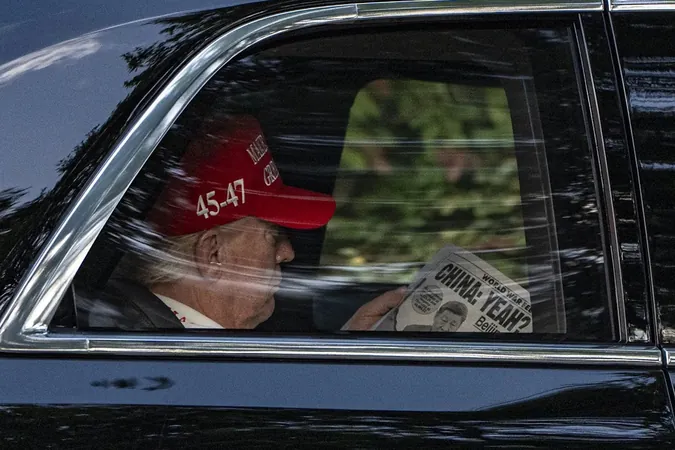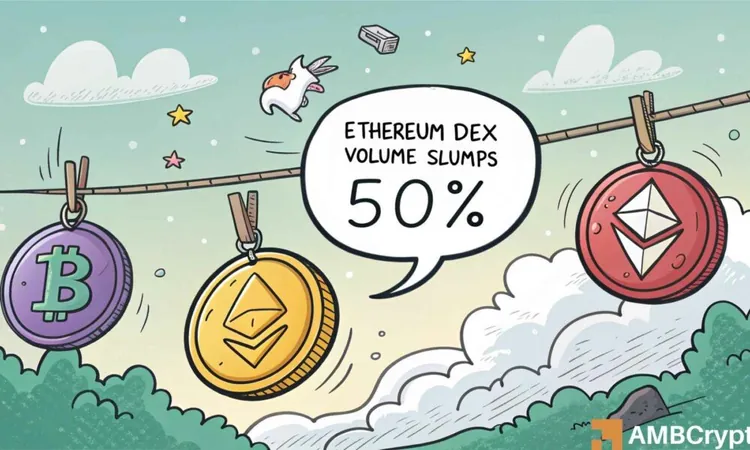
Trump's Bold Tariff Gamble: Will It Pay Off for Americans?
2025-04-06
Author: Noah
In a move that has shocked many, President Donald Trump has announced significant new tariffs on imports from nearly all U.S. trading partners, just a day after his party faced setbacks in a crucial Wisconsin race and struggled in Florida. This bold action appears to be a defining moment in Trump's political narrative, demonstrating his unwavering commitment to a protectionist economic vision that he has championed for over four decades.
This tariff announcement represents not only a continuation of Trump’s belief that free trade agreements are detrimental to American manufacturing but also a chance for him to unleash his instincts in a way he felt was restricted during his first term in office. The question now is whether this gamble will ultimately serve as a hallmark of his presidency or lead to significant economic repercussions.
Initial reactions to the tariff decision are mixed and somewhat alarming. Financial markets experienced their worst downturn since the beginning of the COVID-19 pandemic, with many economists warning that these new import taxes could lead to inflation spikes and potentially push the U.S. economy into a recession. Meanwhile, Republican lawmakers are expressing growing concerns about the future of their party, while Democrats are seizing the opportunity to rally and critique what they view as Trump’s overreach.
Major protests organized by Democratic activists across the nation have marked a pivotal moment of political pushback. "The winds are changing," stated Rahna Epting, director of MoveOn, reinforcing the sentiment that this political climate is shifting.
Despite the backlash and signs of economic trouble, Trump remains undeterred. He has publicly proclaimed that the tariffs will catalyze a renaissance in domestic manufacturing and serve as a funding source for extensions of his proposed tax cuts from 2017. Notably, Trump insisted on Thursday that the economy was set to "boom" even as the stock market plummeted, showcasing a stark contrast between his optimism and financial reality.
The White House has reiterated its commitment to this new course of action, with spokesperson Kush Desai stating, "This past November, America resoundingly rejected the business-as-usual policies coming out of D.C. The entire Trump administration is committed to fulfilling President Trump's mandate to disrupt the status quo."
Trump's previous tariff strategies have historically drawn international leaders closer to negotiate, but the current landscape presents a different challenge, as aggressive retaliatory measures from China and counteractions from European allies loom on the horizon.
Even some loyal Trump supporters are beginning to voice their concerns. For instance, Frank Amoroso, a 78-year-old from Dewitt, Michigan, shared his worries about surging interest rates and inflation affecting his immediate financial situation, although he maintains optimism about the long-term benefits of the tariffs.
As Trump doubles down on his bold tariffs, the stakes are high. Will his strategy lead to a manufacturing resurgence and prosperity for Americans, or will it result in economic turmoil and political backlash? Only time will tell, but one thing is certain: this is just the beginning of a tumultuous chapter in American economic policy under Trump’s leadership.









 Brasil (PT)
Brasil (PT)
 Canada (EN)
Canada (EN)
 Chile (ES)
Chile (ES)
 Česko (CS)
Česko (CS)
 대한민국 (KO)
대한민국 (KO)
 España (ES)
España (ES)
 France (FR)
France (FR)
 Hong Kong (EN)
Hong Kong (EN)
 Italia (IT)
Italia (IT)
 日本 (JA)
日本 (JA)
 Magyarország (HU)
Magyarország (HU)
 Norge (NO)
Norge (NO)
 Polska (PL)
Polska (PL)
 Schweiz (DE)
Schweiz (DE)
 Singapore (EN)
Singapore (EN)
 Sverige (SV)
Sverige (SV)
 Suomi (FI)
Suomi (FI)
 Türkiye (TR)
Türkiye (TR)
 الإمارات العربية المتحدة (AR)
الإمارات العربية المتحدة (AR)